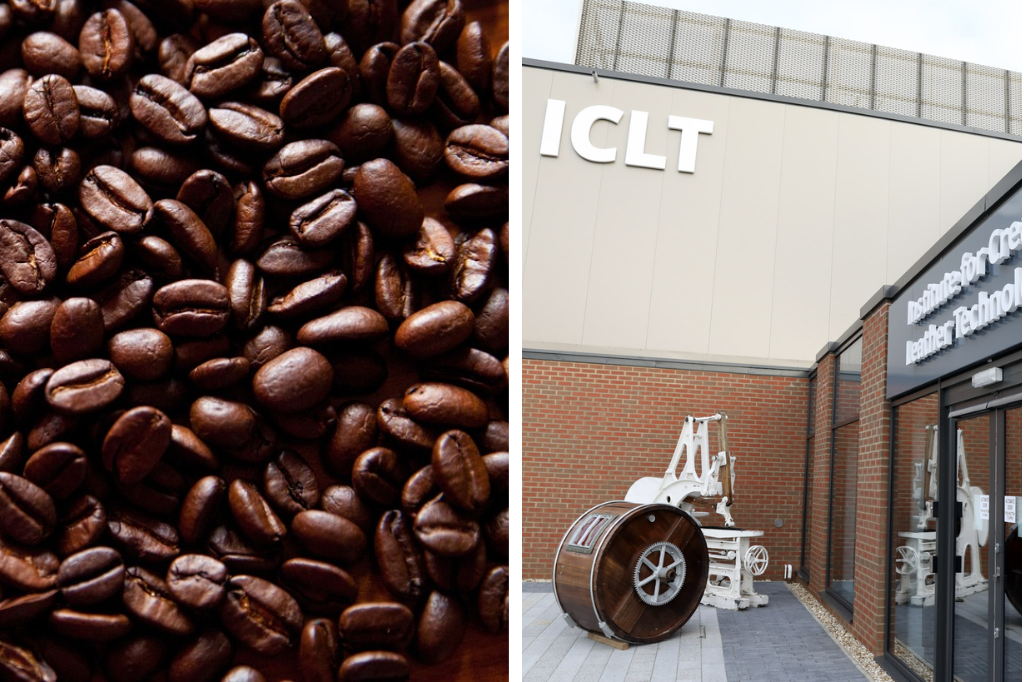Could teas, seeds and coffee be the answer to more sustainable leather tanning?
Date 6.01.2023

Two academics have set out on a mission to unearth sustainable, plant-based alternatives to change the course of leather tanning worldwide.
With more than 80% of global leather manufacture tanned with chromium (III) salts, which are not renewable and problematic to recover at end-of-life, the leather industry is in need of a new direction to develop better sustainable alternatives to improve the impact of the global leather industry, according to this research duo.
Senior Lecturer in Product Design Friedemann Schaber and Senior Lecturer in Leather Technology Stefan Davis have teamed up to tackle the issue, kickstarting their research into finding sustainable plant-waste alternatives to chromium salts – and have already obtained some promising results.
While Friedemann and Stefan’s research is still within its early stages, after successfully creating a series of working prototypes using coffee tannins, such as a wallet and place mats, they’re moving on to the next stage of their research and looking to extract tannins from black tea, green tea, rapeseed hulls and hops – a key ingredient used within the beer brewing process.
On their research, Stefan explains: “Currently, the source of the chromium-tanning salts is problematic for improving sustainability as is the chromium content of soil after biodegradation. A huge amount of what we are trying to achieve is in re-thinking leather processing chemistries, encouraging the use of different sources of chemicals that advance the circular economy of those industries and improve the sustainability of leather manufacture.”
“Through working collaboratively with local Northampton-based coffee businesses, including Yellow Bourbon Coffee Roasters and Illy Café, we have been able to get our hands on their coffee waste and put this to good use in creating example products.”
The prototypes created by Friedemann and Stefan are a step in the right direction, demonstrating the viability of using tannins found in coffee waste to create a quality leather product.
Friedemann continues: “As our research progresses, we’re looking to expand our horizons of plant waste and look to evaluate the feasibility of tanning leather using a range of sustainable materials and methods to develop sustainable alternatives to chromium tanning salts.
“As a nation of coffee and tea drinkers, the potential of this research could be huge – if we can effectively prove the possibility of using natural tanning agents over chromium-salt equivalents on an industrial scale, we could change the course of leather tanning processes towards a more bio-refining, sustainable future.”